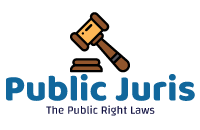
Osl Retail Services Lawsuit: Unraveling the Allegations of Fraud and Unfair Practices
The name Osl Retail Services might not ring a bell for many, but the company’s alleged involvement in fraudulent practices has brought it under the spotlight. A lawsuit filed against Osl Retail Services and its parent company, Dollar General, has shed light on a series of troubling accusations, raising concerns about the company’s business ethics and its treatment of customers.
The Heart of the Matter: Allegations of Fraud and Unfair Practices
The lawsuit, filed in the United States District Court for the Northern District of Illinois, alleges that Osl Retail Services and Dollar General engaged in a pattern of deceptive and unfair practices. Specifically, the plaintiffs claim that the companies:
- Engaged in bait-and-switch tactics, advertising products at lower prices than they were actually sold for.
- Failed to disclose material information about products, such as hidden fees or restrictions.
- Engaged in deceptive marketing practices, using misleading language and imagery to entice customers.
- Engaged in unfair billing practices, charging customers for unauthorized services or products.
These allegations paint a disturbing picture of a company that prioritized profits over the well-being of its customers. If proven true, these actions would not only be a violation of consumer protection laws but also a betrayal of trust.
The Fallout: Legal Implications and Public Scrutiny
The lawsuit has brought significant legal challenges to Osl Retail Services and Dollar General. The companies face the prospect of substantial financial penalties if found guilty of the alleged violations. Moreover, the negative publicity surrounding the lawsuit has tarnished the companies’ reputations and could have a lasting impact on their customer base.
The Importance of Consumer Awareness
The Osl Retail Services lawsuit serves as a stark reminder of the importance of consumer awareness. It is crucial for consumers to be vigilant and to carefully scrutinize the terms and conditions of any product or service they purchase. Additionally, consumers should not hesitate to report any suspected deceptive or unfair practices to the appropriate authorities.
Conclusion: A Call for Accountability and Transparency
The Osl Retail Services lawsuit highlights the need for greater accountability and transparency in business practices. Companies must prioritize ethical conduct and ensure that their actions align with the best interests of their customers. Only then can we foster a marketplace that is fair, honest, and trustworthy for all.
FAQs
What is Osl Retail Services?
Osl Retail Services is a subsidiary of Dollar General that provides various services to Dollar General stores, including product assortment, pricing, and marketing.
What are the allegations against Osl Retail Services?
Osl Retail Services is accused of engaging in bait-and-switch tactics, failing to disclose material information about products, using deceptive marketing practices, and engaging in unfair billing practices.
What are the legal implications for Osl Retail Services and Dollar General?
If found guilty of the alleged violations, Osl Retail Services and Dollar General could face substantial financial penalties.
What can consumers do to protect themselves from deceptive practices?
Consumers should be vigilant and carefully scrutinize the terms and conditions of any product or service they purchase. Additionally, consumers should report any suspected deceptive or unfair practices to the appropriate authorities.
What is the importance of accountability and transparency in business practices?
Accountability and transparency are essential for fostering a fair and trustworthy marketplace. Companies should prioritize ethical conduct and ensure that their actions align with the best interests of their customers.
What are some examples of deceptive or unfair business practices?
Bait-and-switch tactics, failing to disclose material information about products, using deceptive marketing practices, and engaging in unfair billing practices are all examples of deceptive or unfair business practices.



